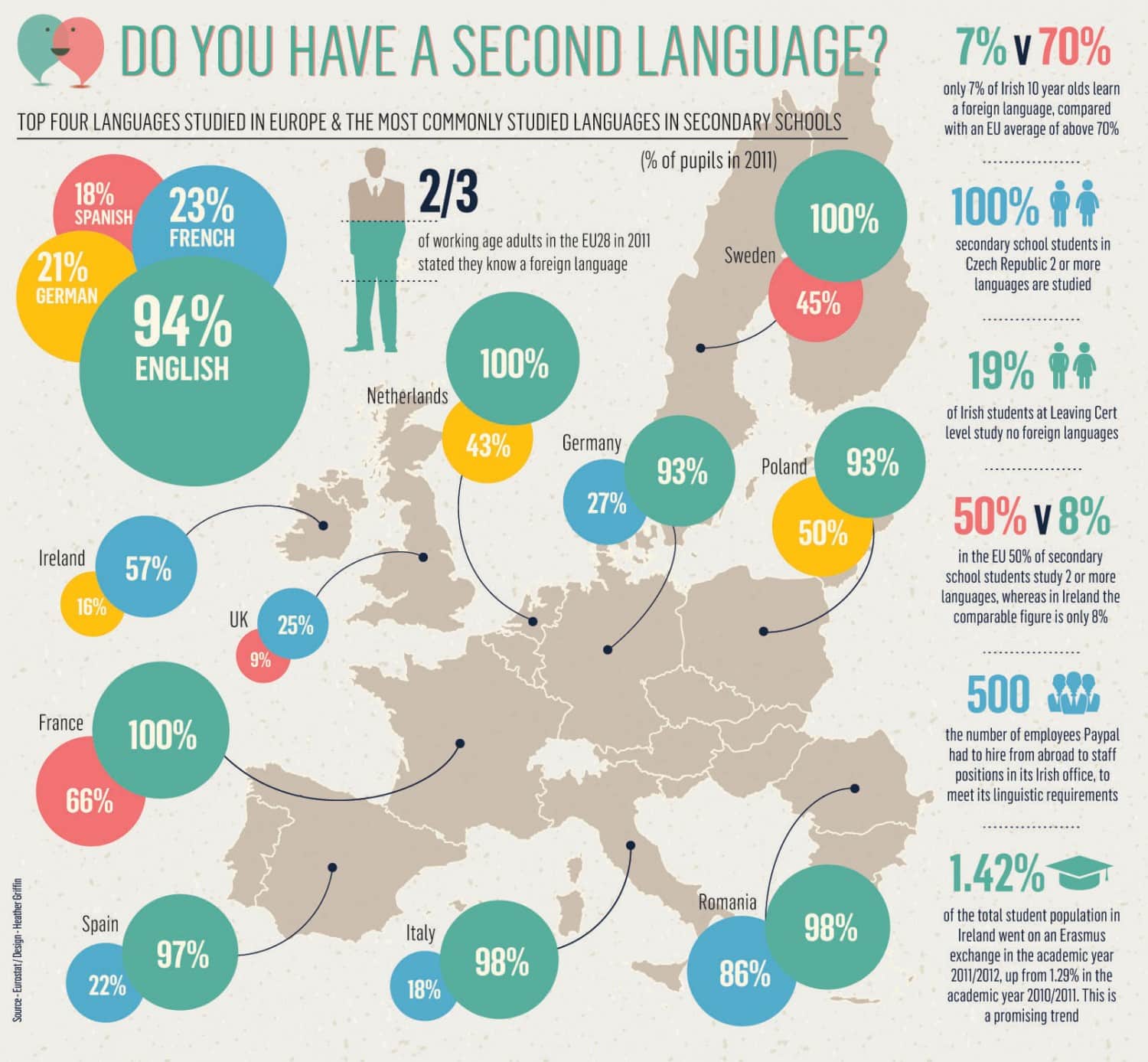Nearly two billion people – that’s almost one in three people – study English as a non-native language.
In the developing world, English is less of a foreign language skill and more a tool synonymous with development, expanding a country’s economy and increasing its connectedness to the rest of the world.
And for small countries with few native-language speakers, it also makes sense to learn a little of the world’s lingua franca for business and policy making.
The English Proficiency Index has just released statistics on where English is learned around the world and quality of teaching to find the countries with the highest proficiency of English as a second language.
The countries with the best English speakers:
Sweden (70.94%), Netherlands (70.58%), Denmark (70.05%), Norway (67.83), Finland (65.32%), Slovenia (64.97%), Estonia (63.73%), Luxembourg (63.45%), Poland (62.95%), Germany (61.83%), Austria (61.67%), Singapore (61.08%), Malaysia (60.30%), Argentina (60.26%)
Four Nordic countries and the Netherlands come top of the rankings, with at least 65 per cent of the population fluent in English.
Other European nations dominate the rest of the list.

As for Hungary with 57.90%, it is 21st in the rankings and belongs to the high proficiency band.
The only non-European countries to feature are highly-developed city state Singapore, and its neighbour Malaysia, as well as Argentina.
This fifth edition of the EF English Proficiency Index (EF EPI) ranks 70 countries and territories based on test data from more than 910,000 adults who took their online English tests in 2014.
The average level of adult English proficiency in the world has risen slightly since last year, but this increase is far from uniform across countries, regions, and age groups. Many countries have seen no significant change, and a few have declined.
The gap between the highest and lowest proficiency countries has widened, with the top-ranked country, Sweden, a full 33 points above Libya (37.86%), in last place
Worldwide, English proficiency levels are highest among young adults aged 18-20. However, on a global level, the difference in English ability between age cohorts is extremely small for adults under 30. On a national level, the story is quite different, with some countries showing stark generational differences and others almost none.
Women speak English better than men worldwide, in every region surveyed, and in almost every country. The gender gap is widest in Eastern Europe, the Middle East, and North Africa and largely absent in the very high proficiency countries of Northern Europe.
Europe continues to dominate the index, filling the highest proficiency bands. Northern and Central Europe are particularly strong, and their positions have strengthened over the past five years. France stands out in Europe for its low English proficiency.
Asia has a high level of English skill diversity, with three countries in the High Proficiency band as well as several in the lowest proficiency band. Asia is by far the most populous region in the index, so this diversity is not unexpected.
If you are interested in what your results would be like you can complete the test at www. efset.org.
source: Independent, EF Standard English Test
Vocabulary
tool | eszköz |
to expand | tágítani, kiterjeszteni |
lingua franca | különböző nyelveket beszélő emberek közös nyelve (pl. angol) |
rankings | rangsor |
fluent | folyékony |
uniform | egyöntetű |
to decline | hanyatlani |
cohort | csoport |
stark | határozott, erős, nagy |
to be absent | nincs jelen, hiányzik |
to stand out | kiugrik, szembeötlik |
diversity | diverzitás, változatosság |
populous | népes, sűrűn lakott |





